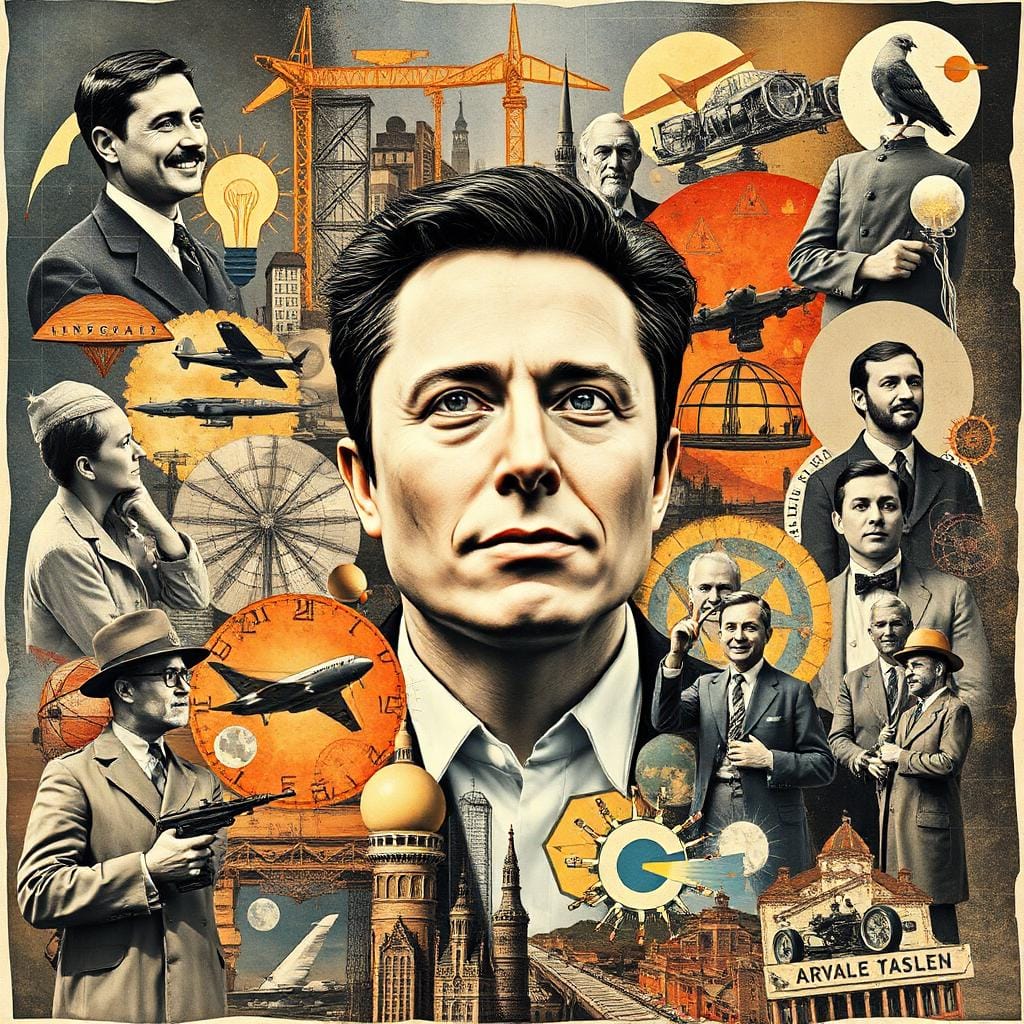
Vancouver, BC - March 31, 2025 - Elon Musk’s ties to Canada stretch back to his grandfather, Joshua Haldeman, a man deeply involved in the technocracy movement of the 1930s. This movement, which sought to replace traditional government with a leadership of scientists and engineers, was inspired by Howard Scott, an American engineer who co-authored The Technocracy Study Course during the Great Depression. The concept of technocracy itself was earlier introduced in a book titled Technocracy, written by Walter Henry Smyth in 1921. Scott’s ideas found traction in Canada, where Haldeman became a key advocate.
The Book That Started It All
The book Technocracy, written by Walter Henry Smyth in 1921, lays out a vision of societal management driven by scientific and engineering principles, emphasizing the influence of four great human instincts: to live, to make, to take, and to control. Smyth argued that these instincts, inherent and unchangeable, shape human behavior and social structures, but could be harnessed constructively through a technocratic system to prevent chaos and promote efficiency.
The Technate Concept
This idea later influenced the technocracy movement of the 1930s, which, under figures like Howard Scott and advocates such as Joshua Haldeman, proposed a radical unification of North America—merging Canada, the United States, Greenland, and Mexico into a single entity known as the "Technate." This vision aimed to transcend national borders and traditional politics, creating a continental system governed by technical experts who would optimize resources and productivity through technology, reflecting a desire to align human instincts with a scientifically managed society. While Smyth’s original work focused more on industrial democracy, the movement it inspired expanded his concepts into a bold geopolitical experiment that ultimately faded but left echoes in modern discussions of efficiency and innovation.
Technocracy Banned
However, the Canadian government viewed the movement as a direct threat, as one of its mandates was to overthrow the existing system. By 1940, technocracy was banned in Canada, and Haldeman, facing the possibility of arrest, fled the country with his family. He eventually settled in South Africa, where he continued his work and instilled a spirit of innovation and defiance in his descendants—including his grandson, Elon Musk.
The German Connection
Musk’s lineage is also deeply rooted in the Pennsylvania Dutch community—immigrants who, despite their name, were not Dutch but actually German (Deutsch). The story of the Pennsylvania Dutch begins in Germany. Their ancestors were mainly from the Palatinate of the southern Rhineland in Germany. The Palatinate was a significant area of contention during the Thirty Years’ War, which pitted the French against the Holy Roman Empire regarding the issue of Protestantism. These settlers brought with them a legacy of resilience, industriousness, and technical ingenuity. That heritage, combined with his grandfather’s revolutionary mindset, helped shape Musk into the visionary entrepreneur he is today.
The Canadian Connection
Elon Musk’s own Canadian connection continued when he immigrated to Canada as a young man, studying at Queen’s University in Ontario before launching his career in the United States. While the technocracy movement itself faded, its ideals—using technology to reshape industries—live on in Musk’s ventures, from Tesla to SpaceX. Even though Musk is currently not the most popular man in America due to his work with DOGE and other controversies, he has undeniably started a movement and a revolution that will last long after he is gone.
The rise of technocratic ideas, from Smyth’s early writings to the organized efforts of the 1930s, reflects a recurring pattern in society where periods of crisis or rapid change spark calls for expert-driven solutions. History shows this cycle: ideas emerge, gain momentum, fade, and often resurface in new forms, influenced by their origins and the needs of the time. Understanding where these concepts begin, what they signify for social structures, and how they impact governance can help us evaluate their potential and pitfalls. By studying these patterns, society can make informed choices—whether embracing, adapting, or rejecting such frameworks—to shape a future that balances innovation with broader human values.
#Elon Musk #Technocracy #Innovation #History #Pennsylvania Dutch #Tesla #SpaceX #Revolution #German Canadian Business News #Elke Porter
Connect with Elke at Westcoast German Media or on LinkedIn: Elke Porter or contact her on WhatsApp: +1 604 828 8788
